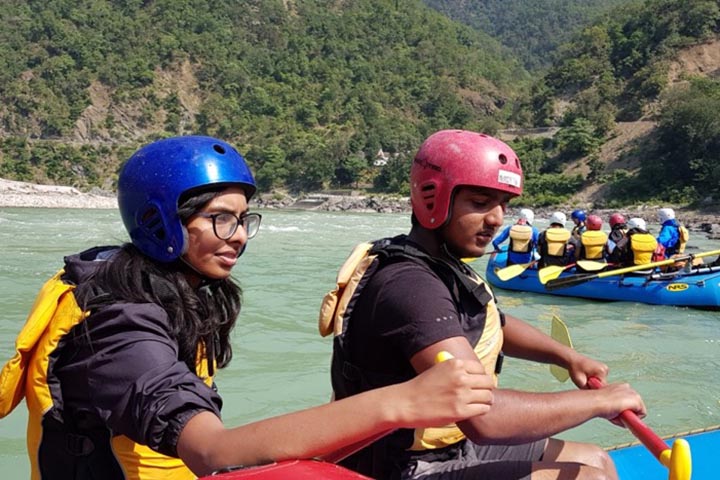
17 Feb Build a RAFT for Transition
Thursday marked 100 days until this year’s seniors graduate from Woodstock. For everyone, leaving school is a watershed moment, the culmination of their formative years and a major step on their journey to adulthood.
During their time at Woodstock, they will have made friends who will remain their life-long companions, and leave equipped with a passion and curiosity for life which should help them to thrive in whatever path they choose to follow. By this time of the senior year, most students are excited at the prospect of moving on and taking their first real steps into independent adulthood. But a little personal housekeeping now can help to tie up loose ends and make their transition to their future selves run a lot more smoothly.
The late Dr David Pollock was known as an expert on the experience of third culture kids – people who spend a significant part of their developmental years outside their parents’ culture, assimilating areas of each culture into their life experience. While much of Pollock’s work focused on expat children, a broader definition could include anyone for whom there is no simple answer to the question “where are you from?” It’s fair to say that many Woodstock students and staff, myself included, would fall into this category.
In their book, ‘Third Culture Kids: The Experience of Growing Up Among Worlds’, Pollock and Ruth Van Reken, advise that you help your child to build a RAFT as a way to obtain healthy closure. RAFT stands for reconciliation, affirmation, farewell, and think destination.
Reconciliation: When we hear that we are leaving, it is often easy to ignore any interpersonal difficulties we may be having. However, these difficulties do not go away when we leave and this mental baggage may even affect our future relationships. Therefore, it is very important to resolve any conflicts before we leave. In order to do this, we need to both forgive and be forgiven.
Affirmation: By acknowledging the influence of a person in our lives, relationships can be built and maintained. This can involve identifying special teachers, friends and family members and acknowledging them for example with notes and/or appreciation.
Farewells: It is important to say good-bye to people, places, pets and things that are important to us. This may involve for example giving somebody a gift, attending a party for people we want to say goodbye to, planting a tree in your favourite spot or taking pictures of what we cherish.
Think Destination: Finally, it is imperative to begin thinking about the future destination by asking questions about it and considering what resources you will have there to aid with the transition. It may for example be helpful to research the new place online and/or get in contact with other families in the new destination.
While the Class of 2020 will be going through the most intense, collective transformation, it’s worth remembering that most students will undergo transition to some extent every year. International schools are by their nature transient places, and special friends and teachers go to continue their own journey’s elsewhere, as others take their place. Resilience is one of the key outcomes that we’re looking for in our students’ lives as they deal with these many transitions in their lives. So even if your child is a long way from graduation, helping them build their raft shouldn’t have to wait until they are ready to set sail. One thing that’s important is to start thinking about transition sooner rather than later. It may only take days to pack our bags, but can take much longer to work through our own transitional baggage.
Dr Craig Cook, Principal, Woodstock School






akash
Posted at 17:37h, 29 FebruaryVery extraordinary writing. I really enjoy such writing because it is very easy to understand and helpful.
Please keep writing and sharing your thoughts.
Thank You.